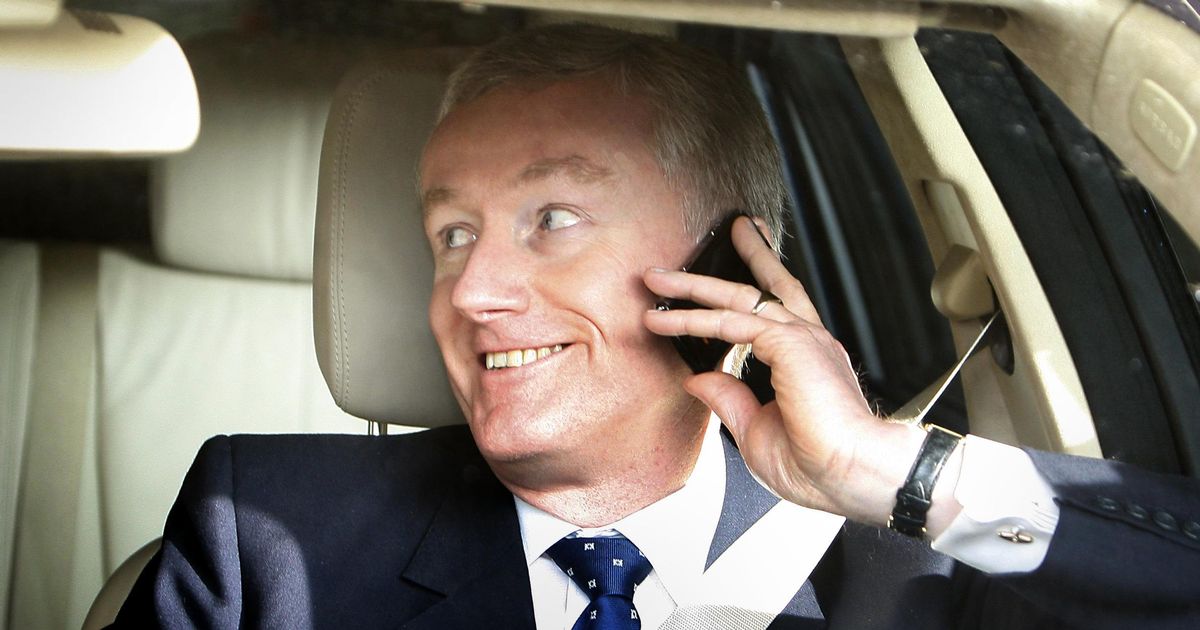The UK taxpayer is line for a £10bn loss when the former RBS group is finally returned to full private ownership.
11:22, 26 May 2025Updated 14:32, 26 May 2025
 RBS expanded to be the worlds largest bank at one point under former boss Fred Goodwin (Image: PA Archive/PA Images)
RBS expanded to be the worlds largest bank at one point under former boss Fred Goodwin (Image: PA Archive/PA Images)
Disgraced former RBS boss Fred Goodwin is coining in an annual pension worth an estimated £600,000 thanks to a deal which sees his payouts linked to inflation.
It comes as the UK Government is preparing to sell its final stake in the bank, which was saved from extinction in 2008 thanks to billions of pounds of taxpayers’ money.
Labour ministers are expected to write-off as much as £10bn in losses when the shares are sold-off in the coming days.
Goodwin remains a hugely controversial figure after he became the public face of the banking crash in the UK, that cost the public coffers billions.
The Paisley-born chartered accountant – dubbed “The Shred” by his colleagues – oversaw a rapid expansion of Royal Bank of Scotland in the 2000s before the once respected institution was brought to its knees by the global banking crash.
RBS has since rebranded as NatWest at corporate level in a bid to improve its tarnished public image.
READ MORE: SNP complain about Reform’s ‘race-baiting’ advert on Scottish Labour leader Anas SarwarREAD MORE: Winter fuel payment update issued by Labour Government after u-turn
The banking group is expected to return to full private ownership shortly – which will draw a line under a £45bn state bailout that saved the bank from the brink of collapse at the height of the 2008 financial crisis.
The 17-year effort to off-load the government’s 84 per cent stake in the lender has come at a substantial cost to the public purse.
Shares have only recently pushed past their pre-financial crisis levels – closing at 524p on Friday – but the bulk of the UK Government’s holding has remained below the 502p at which they were bought.
Analysis by the Guardian means the UK Government could end up recovering roughly £35bn of the original £45bn spent on the rescue package in 2008, marking a near-£10bn loss.
It comes as annual pension payouts have soared for Goodwin. He was sacked as part of a non-negotiable condition of the state rescue and originally walked away with a £16m pension pot that paid out about £700,000 a year.
But public outrage forced Goodwin and the bank to halve those payouts to £342,500 a year.
But an agreement that linked his payouts to the rate of inflation has pushed that figure ever-closer to the original sum.
Estimates by wealth manager Quilter, and first published by the Guardian, show the bank is now spending about £598,000 a year on Goodwin’s pension nearly 17 years after the bailout.
Goodwin was slated for what was later viewed as excessive spending on a string of acquisitions, private jets, and a sprawling £350m campus in Edinburgh.
It meant the 300-year-old bank was left without sufficient financial buffers that could have helped the company weather the storm of the 2008 credit crunch.
Lorna Slater, Scottish Greens co-leader, said: “The last UK Labour Government was responsible for bailing out big banks, while abandoning working class families who were forced into extreme financial difficulties from the catastrophic decisions of bankers like Mr Goodwin.
“Now, this Labour government is set to hand the keys back to the people that caused the financial crash and give huge payouts to those directly responsible.
“This deal is yet again set to benefit the richest in society while costing working-class people.”
The Record has asked NatWest for comment.
To sign up to the Daily Record Politics newsletter, click here
